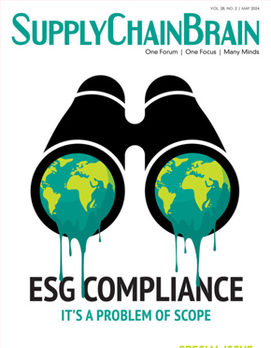
The hiring and employment landscapes have seen rapid changes over the past few months. As part of an ongoing commitment to safety and positive workplace culture, some companies are ramping up their background-check policies — including plans to periodically re-screen employees over time.
A recent poll by background-screening company Sterling revealed that 55% of respondents are considering or planning to re-screen employees who have been furloughed during the coronavirus pandemic. As more businesses re-open, investing in consistent, high-quality background checks every 12 to 24 months can help reduce risk.
The Contractor Challenge
Ultimately, contractors may stand shoulder-to-shoulder with each other and your permanent team members. The right skills and background are critical for ensuring both overall success and safety. It is critical that those on your job sites are who they say they are and are uniformly reflecting your standards. This requires you to have full transparency and accuracy on criminal background and documented work experience.
Risks can be mitigated by applying the same background screening process used for permanent workers when hiring contract and contingent workers. By applying a uniform set of standards that is executed by a single background screening company, you can better maintain your corporate culture and build a foundation of trust and safety for your organization.
A clear indicator of a strong contractor screening program is one that allows you to control, administer, and operate within your master background screening account. A consistent scoring approach, with easy access to the status of each check, enables you to quickly see an individual contractor’s eligibility to enter your worksites. The experience of your HR team will also improve when they can leverage a single set of reports and dashboards rather than a veritable maze of disparate screening solutions.
Assessing and Reducing Risk
Throughout the COVID-19 pandemic, many companies have had to make the painful decision to furlough or lay off valued employees. Whether or not there is a break from continuous employment, companies need to consider potential criminal activity that may have taken place within their employee populations during any gaps, as there could be a risk of troubling behaviors to potentially occur.
Many companies reduce this risk by conducting a criminal history re-screening at a pre-determined time increment, such as annually or bi-annually. There are three direct effects derived from adopting this approach:
- Employees will know that criminal activity may eventually be reported. This can increase self-disclosure, which may be a policy at certain companies, that can better enable appropriate counseling or training.
- A “Hawthorne effect” may occur, wherein one sees altered behaviors of an individual who is aware of being observed.
- In the case of a conviction, the company can learn about this change in criminal records within a defined period of time, limiting possible exposure.
Re-screening provides you the ability to receive regular, actionable insights into your employee base over time, as new circumstances may arise. This type of screening offers timely and ongoing protection against workplace violence, criminal behavior, fraud, and theft. With the current state of uncertainty, remaining compliant and partnering with an expert re-screening provider will help mitigate risks as well as keep you in the know. You can then take actionable steps to ensure safety in your organization.
Alla Schay is general manager of Industrials, Government and Education at Sterling, a provider of background and identity services.




.jpg?height=100&t=1715228265&width=150)


